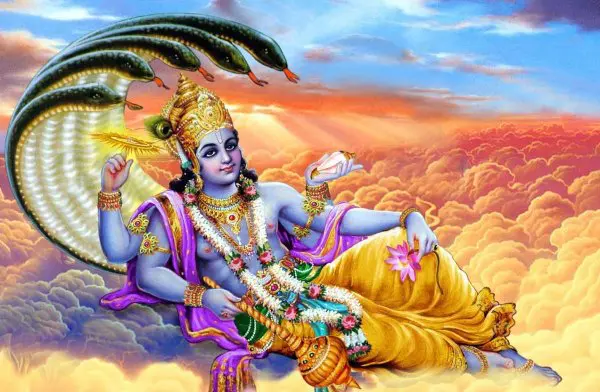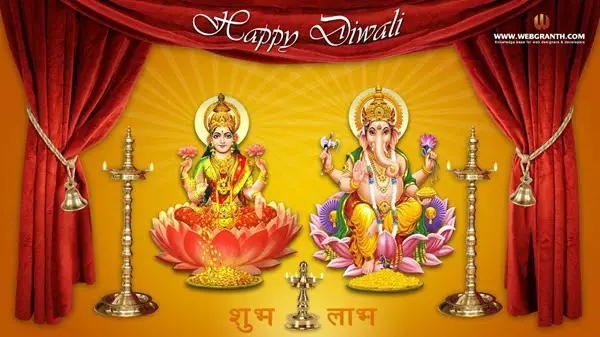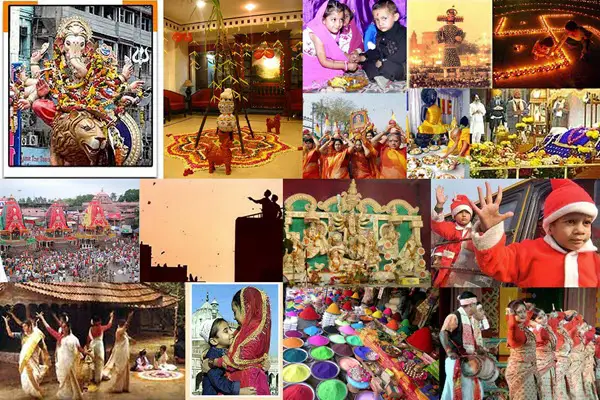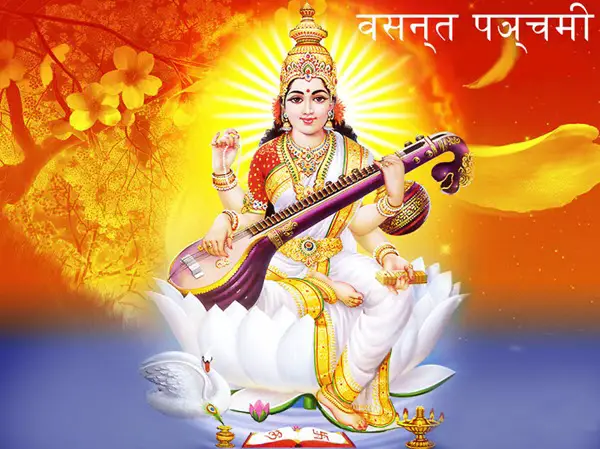Ekadashi (or Ekadasi) is the eleventh lunar day (tithi) that falls in each of the two lunar phases, i.e., the Shukla Paksha (the waxing phase of moon) and the Krishna Paksha (the waning phase of the moon) in a Hindu calendar month. This post is on Ekadashi and Ekadashi Vrat Importance.
Ekadashi is considered as a spiritual day by the Hindus and is dedicated to the worship of Lord Vishnu. It is usually observed by keeping a partial fast.
Those who keep the Ekadashi fast do not consume beans and grains in any form as it is believed they get contaminated by sin. Instead, the observant people keep the fast on fruits, vegetables, and milk products. The period of abstinence begins from sunrise on the Ekadashi day and lasts till sunset on the following day.

In a calendar year, there are usually 24 Ekadasis. However, a leap year has two extra Ekadasis. Each Ekadasi day offers specific benefits that can be attained by performing specific activities.
The table below lists all the Ekadashi and when they fall in the year:
| The Vedic Lunar Month | Presiding Deity | Krishna Paksha Ekadashi | Shukla Paksha Ekadashi |
| Chaitra (April-May) | Vishnu | Papavimocani Ekadashi | Kamada Ekadashi |
| Visakha (May-June) | Madhusudana | Varuthini Ekadashi | Mohini Ekadashi |
| Jyeshtha (June-July) | Trivikrama | Apara Ekadashi | Nirjala Ekadashi |
| Ashaad (July-Aug) | Vaamana | Yogini Ekadashi | Shayani Ekadashi |
| Shravana (Aug-September) | Sridhar | Kamika Ekadashi | Shravana Putrada Ekadashi |
| Bhadrapada (September-Oct) | Hrisikesha | Ananda Ekadashi | Parsva Ekadashi |
| Ashvin (Oct-Nov) | Padmanabha | Indira Ekadashi | Paashunkushaa Ekadashi |
| Kartik (Nov-Dec) | Damodara | Rama Ekadashi | Prabodhini Ekadashi |
| Margasirsha (Dec-Jan) | Keshava | Vaikunta Ekadashi | Mokshada Ekadashi |
| Pausha (Jan-Feb) | Naaraayana | Saphala Ekadashi | Pausha Putrada Ekadashi |
| Maagha (Feb-Mar) | Maadhava | Shat Tila Ekadashi | Jaya Ekadashi |
| Phalguna Mar-Apr | Govinda | Utpanna Ekadashi | Amalaki Ekadashi |
| Adhika Month (Once in 3-4 years) | Purushottama | Paramaa Shuddha Ekadashi | Padmini Visuddha Ekadashi |
“Om Namo Bhagavate Vasudevaya” is the Vishnu Mantra that is chanted on this day of Ekadashi.
The Hare Krishna Maha Mantra is chanted 108 times on Ekadashi:
Hare Krishna Hare Krishna Krishna Krishna Hare Hare, Hare Rama Hare Rama Rama Rama Hare Hare.
Table of Contents
Ekadashi Meaning
Ekadashi is a Sanskrit word for the number 11.
In fact, Ekadashi is the 11th day in each half of the Hindu Vedic Month. So, in each Hindu Vedic month, there are two Ekadashi days – one that falls in the Krishna Paksha the disappearing phase of the moon and the other in the Shukla Paksha (waxing phase of the moon).
Ekadashi has been set aside for keeping the fast in honor of Lord Vishnu or Lord Krishna. In the Ekadashi fast, devotees do not consume grains and beans, anything that is made from them, or even anything that contains them in it. So, one needs to avoid bread, pasta, lentils, rice, beans, and preparations that are made from bean flour.
However, the Ekadashi fast does not mean that you need to starve yourself. It should be taken as part of our devotional service to the Lord. That said some devotees keep the Ekadashi fast by avoiding all kinds of food. They only drink water or juice.
All in all, Ekadashi fast should elevate your devotion towards the Lord and should not cause tiredness or fatigue. So, you need to practice Ekadashi fasting as much as your capacity allows.
The essence of Ekadashi fast is to minimize the wants of your body and engage yourself in the service of your Lord by chanting or by doing other kinds of devotional service.
So, the purpose of Ekadashi fast is to increase our love for Krishna. We should chant more rounds of His name and read more devotional literature. If possible, you should visit a temple and spend time with other devotees.
It means that Ekadashi is a time to take stock of our spiritual lives. It is the time to spend into the devotional service of the Lord.
According to the Hindu scriptures, Ekadashi has a direct correlation with the human mind. It is said that our mind attains maximum efficiency during Ekadashi, and it can concentrate better.
So, the spiritual seekers devote these two monthly days in worship and meditation towards Lord Vishnu. They observe the Ekadashi fast and spend the night doing Puja and meditation.
The Ekadashi fasts help to check our emotions and senses. We become alert and attentive, and our devotion towards the Lord becomes intense.
Why is Ekadashi Important?
Ekadashi is a tithi that is dedicated to the worship of Lord Vishnu. The significance of Ekadashi was narrated to Yudhishtira (the eldest of the Pandava brothers) by Lord Krishna. Devotees keep the Ekadashi fast to seek prosperity and moksha later in life. They break the fast once the Ekadashi tithi gets over, the next day.
So, Ekadashi is a day of fasting and prayers for all Hindus. It is a day of spiritual practice in which we divert our sense of actions from materialism to divinity. It means that we should control our ten senses and one mind.
It is a penance that we should undergo in order to realize and please God. It is believed that those who keep the Ekadashi fast get rid of malefic planetary influences, experience happiness, gain peace of mind, attain devotion towards the Lord, and finally attain moksha.
The History of Ekadashi
In the Satyuga era, there lived a demon named Murdanav. He was very cruel and terrorized all people on the earth as well as scared the Devas also. So, Devas left heaven and went to Lord Vishnu for help. They prayed to Lord Vishnu and asked for protection.
Lord Vishnu was moved by their plight and rode on his vehicle Garuda to fight the demon. The battle between Murdanav and Lord Vishnu went on for 1000 years. Murdanav was fighting with full power and energy.
Now, Lord Vishnu decided to change his strategy.
Lord Vishnu showed as if He was exhausted by the battle. He hid in a cave in the Himalayas. In the meantime, Lord Vishnu decided to take a nap in this huge cave. So, Lord Vishnu took a rest.
Now, demon Murdanav reached the cave where Lord Vishnu was taking the rest. He saw him sleeping inside the cave. He took out his sword and went on to kill Lord Vishnu. As he was about to swing the sword towards Lord Vishnu, an extremely beautiful lady playing with a sword emerged from the body of Lord Vishnu.
Demon Murdanav was lured by her beauty and asked her to marry him. The lady said, “I would marry if you defeat me in the battle.” So, Murdanav started fighting with the lady. Eventually, Murdanav was defeated and killed by the lady.
Now, Lord Vishnu woke from his sleep and saw that lady who killed Murdanav. Lord Vishnu named that lady “Ekadashi.” That day was the eleventh day in the waxing phase of the moon.
Lord Vishnu was pleased by her act and said that she could ask for a boon. The Ekadashi lady asked Lord Vishnu that people should observe the Ekadashi Vrat and control their senses (Ekadash Indriyas) on this day. She further said that no one should consume grains such as wheat, rice, barley, beans, etc.
Lord Vishnu agreed to this, and from then onwards the Ekadashi Vrat came into being. Lord Vishnu also said that those who keep the Ekadashi fast and offer prayers would get his choicest blessings.
This story is based on the Hindu scripture known as Padma Purana.
What are the benefits of Ekadashi Vrat?
The following are the benefits of fasting on Ekadashi:
- The Ekadashi fast prevents and cures illnesses and diseases. It has a detoxification effect on the body and cleanses the bowel system.
- It helps attract the blessings of Lord Vishnu
- It helps to get rid of your past sins
- The Ekadashi fast paves the way for spiritual progress
- It helps you attain perfection in life
- Those who keep the Ekadashi Vrat get religious bent of mind, wealth, and ultimate salvation
- The Ekadashi fast improves the digestive system, respiratory system, circulatory system, as well as the urinary system.
- The Ekadashi fast makes you strong both mentally and physically
What should we not do on Ekadashi Vrat?
- You should not intake salt, oil, grains, and rice
- Do not consume any form of non-vegetarian items, such as egg, meat, etc.
- Do not consume Masoor, Chana, Shahad (Honey), etc
- Do not consume food items from other people
- Do not indulge in playing cards
- You should not indulge in the sexual act
- One should not utter bad things about other people
- You should not indulge in anger, hatred, and wrongdoings
- You should not intake food in “kanse” utensils
What can you eat during Ekadashi fast?
You can eat all the fruits such as:
- Banana
- Apples
- Oranges
- Mangoes
- Cucumber
- Radish
- Pumpkin
- Lemon
- Coconut
The Food Recipes that you can eat on Ekadashi Vrat include:
- Badam Ke Ladoo
- Custard Apple Juice
- Mango Kheer
- Farali Idli
- Dudhi Ka Halwa
- Mix Fruit
- Aloo Samba Ki Roti
- Farali Mohanthal
- Farali biscuit
You can also eat sugar on this day. In spices, only black pepper is considered to be edible.
Well, that’s all we have for you in this post on Ekadashi and Ekadashi Vrat Importance. Thanks for your visit. We hope that this post on Ekadashi proves useful to you. We welcome your comments and suggestions.




